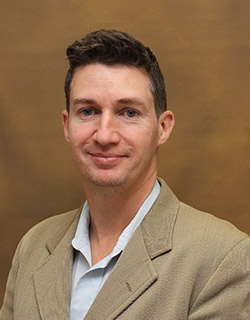Dr. Theodore Bailey WBAL COVID-19 Townhall - March 23, 2021
March 23, 2021More than a year into the COVID-19 pandemic, society is still reeling from its effects, but with vaccinations rapidly increasing, there is now a sense of hope. Theodore Bailey, MD, JD, MA, Chief, Division of Infectious Diseases at GBMC, joined WBAL Radio’s Coronavirus Townhall to answer questions about variants, vaccines, and how safe people are after vaccination.
The exact impact of vaccinations is challenging to measure because they are happening simultaneously with other precautions like physical distancing, masking, and hand washing. “The effect of the vaccines is always going to be difficult to discern from everything else that we do,” Dr. Bailey said. “Right now, we just know that we need to keep getting them out into the community.” In his explanation, he likened vaccines to airbags – they are critical for the safety of the people in the car, but need to be combined with other measures like seatbelts and mirrors. He cautioned people against having a false sense of safety simply because vaccinations are ramping up.
There are currently three COVID-19 vaccines with Emergency Use Authorization from the Food and Drug Administration (FDA), but there is still a very limited supply. Dr. Bailey described how having three separate vaccines helps increase that supply faster than a single one would. He encouraged those with the opportunity to be vaccinated to do so and take whichever version is available to them.
The conversation then shifted to what life looks like for those who have been vaccinated. Dr. Bailey broke social situations into three scenarios:
1. Nonvaccinated people interacting with other nonvaccinated people –
In this situation, nothing has changed, and people should continue all safety precautions.
2. Vaccinated people interacting with nonvaccinated people –
Although part of this group is immunized, all of the same safety precautions should remain in place. There is a small chance that someone who has received the vaccine may become infected with COVID-19, and that person could spread the virus to the unprotected people in the group. Dr. Bailey emphasized that while it is possible to contract COVID-19 after being vaccinated, it is unlikely, and that person will be protected from severe illness.
3. Vaccinated people interacting with other vaccinated people –
In a group of fully vaccinated people (two doses of Pfizer or Moderna or a single dose of Johnson and Johnson), the risk of illness is reduced to what it was prior to the pandemic. “If you’ve been vaccinated, your life is as safe as it was before,” said Dr. Bailey. He stressed that while it is safe to do many activities without extra precautions, this is only the case when everyone in the group is vaccinated.
When asked about new variants emerging, Dr. Bailey gave a message of optimism. While society needs to remain vigilant with precautionary measures and investigating new variants as they appear, research has made great strides since the beginning of the pandemic. “We’ve developed the concept of a COVID-19 vaccine – not just the vaccines we have – and we’ve been able to prove that we can vaccinate against it,” he said. “In the future, if there are more variants that we need vaccines for, we can respond with new versions much more quickly.” He also noted that international cooperation has increased substantially, which will allow scientists and governments to work together to stop another pandemic from spreading the way COVID-19 has.
To learn more about the COVID-19 vaccine and GBMC’s vaccination process, visit www.gbmc.org/covid-19-vaccine-faq.




